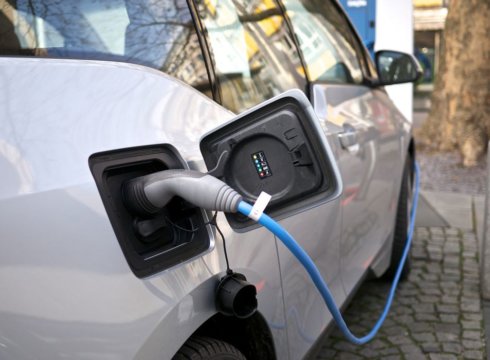SUMMARY
The Development Comes In The Wake Of The Government’s Initiative To Put 1 Mn Electric Vehicles On The Roads By 2019
Inc42 Daily Brief
Stay Ahead With Daily News & Analysis on India’s Tech & Startup Economy
A lot has been happening in the country’s electric vehicle space. Tata Motors is looking to revamp Nano as an EV, in a bid to boost sales. Mahindra Group, on the other hand, is preparing to enter the cab aggregator sector with electric cars. In a related development, the Japanese parent of Maruti India, Suzuki Motor, is gearing up to manufacture EVs at a factory in Gujarat.
Touted as Suzuki’s first commercially-available EVs, the cars will be sold in both Indian and global markets. Previously, in 2010, the automotive giant showcased an electric version of Swift, known as Swift REEV or Range Extender), which didn’t make it beyond the development phase.
Commenting on the development, aimed at utilising the country’s resources to create a global manufacturing base, Suzuki Chairman Osamu Suzuki stated at a meeting in Gujarat, “For the last 35 years, we have been working towards ‘Make in India’ with you all.”
The meeting in question was attended by a number of dignitaries, including PM Narendra Modi and current Japanese Prime Minister, Shinzo Abe.
As part of the initiative, Suzuki is also looking to infuse $600 Mn (INR 3,900 Cr) for the construction of a new plant at Hansalpur. The proposed factory will boast a manufacturing capacity of over 250K units.
With the investment, the company’s funding in Gujarat will reportedly cross $2.1 Bn (INR 13,400 Cr). According to Osamu, the ultimate goal is to increase the state’s annual manufacturing capacity to more than 750K units in the next few years.
Production at one of these plants has already commenced, while production target for the new plant is slated for 2019, sources revealed. The company is also working to establish a combustion engine facility with a capacity of nearly 500K units.
Additionally, Suzuki has announced plans to set up another factory that would be manufacturing lithium-ion batteries for electric as well as hybrid cars. For the project, the company has partnered with Denso to build the core technology. It will also be working with Toshiba to create the fuel cells and cell modules.
So far, the three companies have committed $180 Mn (INR 1,151 Cr). The plant will be operational by 2020. At present, Maruti India, a 56.21%-owned subsidiary of Suzuki, boasts an annual manufacturing capacity of 1.5 Mn units in Haryana through factories in Manesar and Gurugram.
Exploring The Scope Of Electric Vehicles In India
The electric vehicle space in India has been abuzz with activities lately. According to a report by the Society of Manufacturers of Electric Vehicles, there has been a 37.5% rise in the sale of EVs in India in recent years. In a bid to achieve 100% electric vehicles by 2030, the government has taken the bold step of reducing tax on electric vehicles to around 12% with the roll-out of GST.
In January 2017, the Indian government agreed to bear up to 60% of the research and development (R&D) costs for developing the indigenous low-cost electric technologies.
In May, it was reported that the government is inking a deal with SoftBank for low-interest funding of around 200K electric buses to be deployed in public transport. To cut losses on one of its biggest investments in India, Japanese firm SoftBank reportedly even announced plans to turn Ola into an electric car manufacturer.
Around the same time, Maharashtra Chief Minister Devendra Fadnavis inaugurated the first multi-modal electric vehicle project in India, along with an Ola electric charging station in Nagpur, in order to celebrate the third anniversary of the Narendra Modi-led government.
In June, international EV behemoth Tesla Motors’ CEO Elon Musk was reportedly in talks with the Indian government for import exemption on EVs. A month later, Mercedes Benz urged the central government to offer incentives for the manufacturing of electric vehicles. The German automaker claimed that it would be able to introduce electric vehicles in India by 2020, provided it receives adequate support from regulatory authorities.
In the second week of August, Mumbai-headquartered JSW Energy announced plans to launch electric vehicles (EVs) in India by 2020. To that end, the company has promised $545.72-$623.68 Mn (INR 3,500-INR 4,000 Cr) for the next three years.
The Government of India also recently invited tenders for up to 10,000 EVs and 4,000 charging stations in Delhi NCR . Six of the country’s leading automakers, including Tata Motors, Renault, Hyundai, Nissan, Maruti Suzuki, and Mahindra & Mahindra, have reportedly expressed interest in partnering with the government for the project. The move is part of a bigger initiative aimed at putting more than 1 Mn electric three-wheelers and 10,000 electrically-powered city buses on the country’s roads by mid-2019.
Most recently, the Karnataka state government, in its efforts to become the Electric Vehicle Capital Of India, has approved the state’s Electric Vehicle and Energy Storage Policy 2017. This is in line with the state’s “Make In Karnataka” vision.
With its latest initiative in Gujarat, Maruti Suzuki will join the ranks of Tata Motors, Hyundai, Mahindra & Mahindra, and Nissan as an electric vehicle manufacturer operating in India.
(The development was reported by ET)
Note: We at Inc42 take our ethics very seriously. More information about it can be found here.


